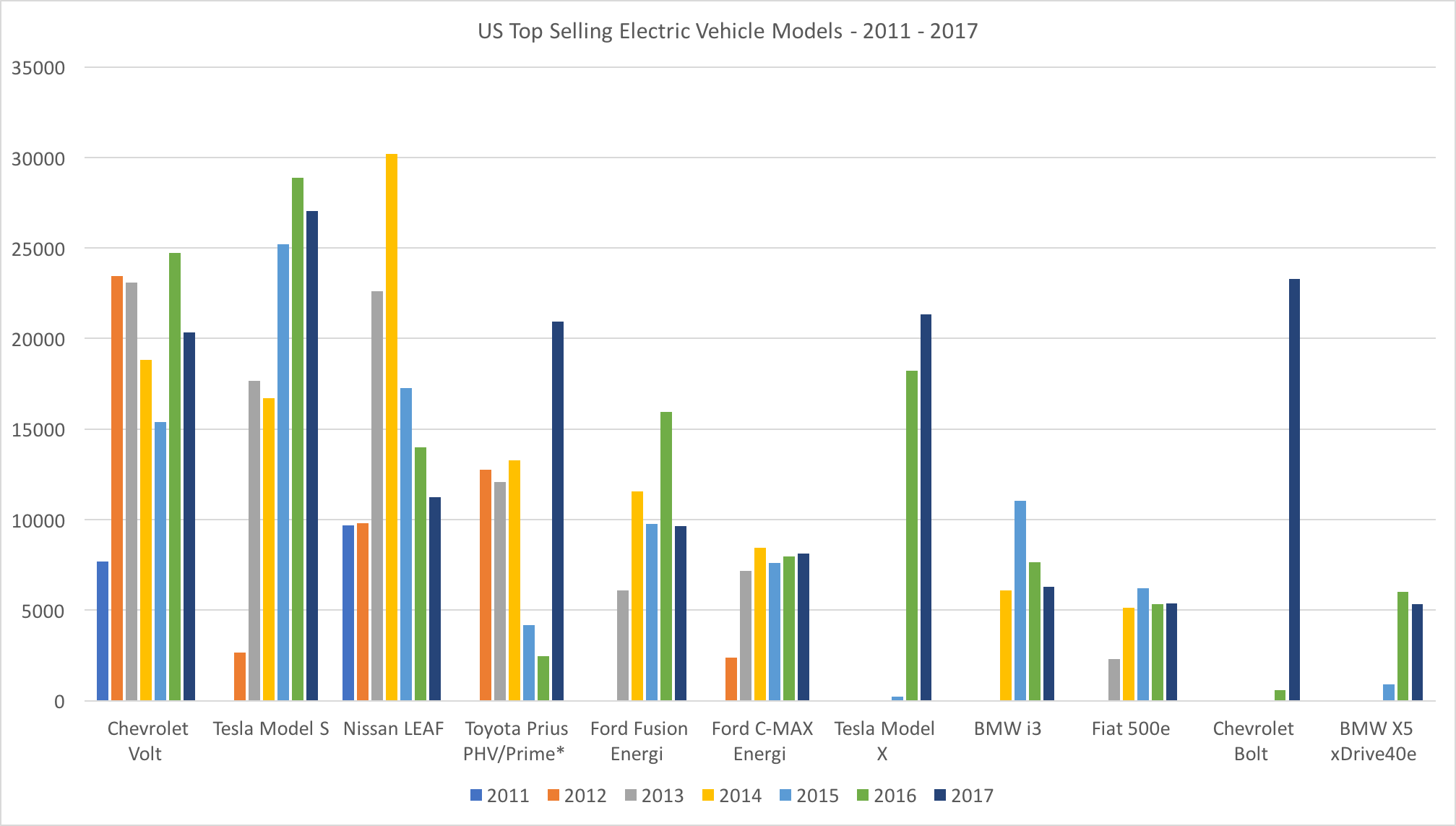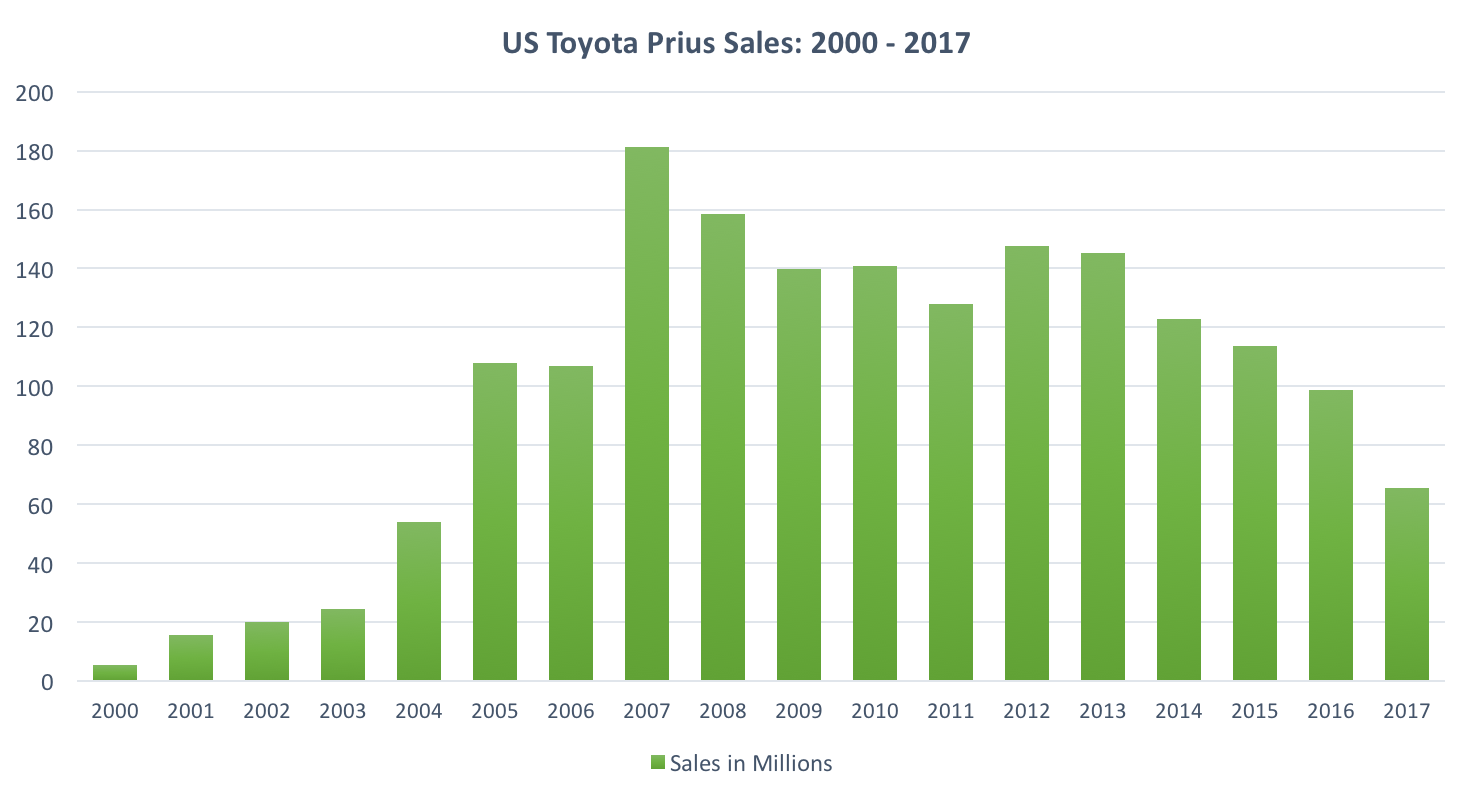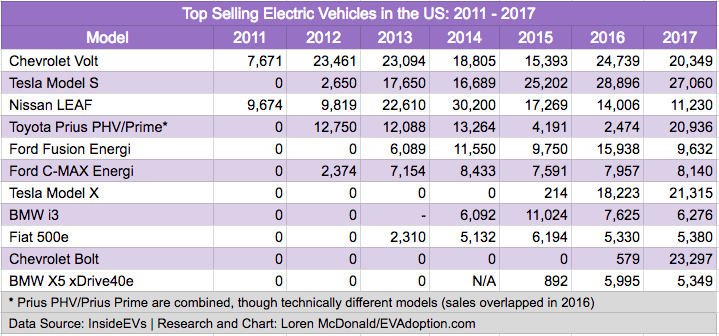Do electric vehicles reach peak sales volume after only a few years? Yes, based on my new analysis of top-selling EVs.
If we look at the bar chart and table below for 11 top selling EVs from 2011 through 2017, the models for sale at least 3 full years, all have had their peak year of sales prior to 2017. (Note: I’ve combined sales of the Toyota Prius PHV and Prime together, but they are in reality different models.) The Prius Prime is certainly a model to watch in 2019 to see if it breaks this 3 year sales trend.

And while a lot could change in the second half of 2018, through June sales for both the Chevrolet Bolt and Tesla Model X are currently trending to end up lower than full-year 2017 levels. The BMW X5 xDrive40e is trending above 2017 sales so far in 2018, but that model could end up below its sales numbers in 2016.
By comparison, looking at the sales history in the US of the Toyota Prius, sales volume for the popular hybrid peaked in its eighth year in the US market. Since peaking in 2007, sales have trended up and down through 2012, but have declined since then. In the case of the Prius, the car became synonymous with hybrid technology and was the king of “green signaling” until EVs such as the Nissan LEAF and Chevrolet Volt started to become the new choice of green car buyers.

Why Are EV Sales Peaking After A Few Years for Top-Selling Models?
The first reason sales of individual EV models are peaking after a few years is that in the US in most markets we are still in the innovator and early adopter phases of EV adoption. This means that there remains only a small percentage of the consumer population willing or able to purchase EVs that have a price premium over ICE models, have a driving range significantly less than similar ICE vehicles and much less choice of model types (SUVs, CUVs, pickups and small sedans).
In other words, currently available EVs remain of interest only to either upper income consumers or those seeking a green car but willing to accept various trade offs versus a comparable ICE vehicle. These scenarios are at their core as to why Californian’s purchase more than 50% of EVs in the US. Northern California in particular has a strong overlap between those who care about the environment, but who are also in an upper-income bracket.
The second factor is competition and advancing technology. With advances in battery packs and prices, a two-year old EV can easily fall behind new EV models with longer range and other new features. For example, sales of the Nissan LEAF has seen a 3-year decline in sales, but with a new design and longer range, sales should rebound to perhaps 2017 levels. And with an even longer-range battery option coming soon, sales in 2019 could be very strong.
When Will This Lack of Sales Growth Continue For Multiple Years With Existing Models?
The big question of course is around the Tesla Model 3, which in its first full year on the market in 2018 will easily be the highest-selling EV of all time in a single year. And it undoubtedly will exceed 2018 sales volume in 2019 (unless you are a Tesla hater or short, then you will likely disagree). But with excitement likely building in 2019 for the Tesla Model Y CUV, which may start production in 2020, US sales of the Model 3 might reach their peak in 2019 or perhaps 2020 and then recede as the Model Y becomes available.
It is unlikely that we will see any EV with 5-7 years of continued sales growth until 2027-2030. And the first vehicle to see such continued sales growth as was seen with the Prius between 2000 to 2007, will likely be the Tesla Model Y.
What other EVs do you think will become a runaway sales leader year after year?




One Response